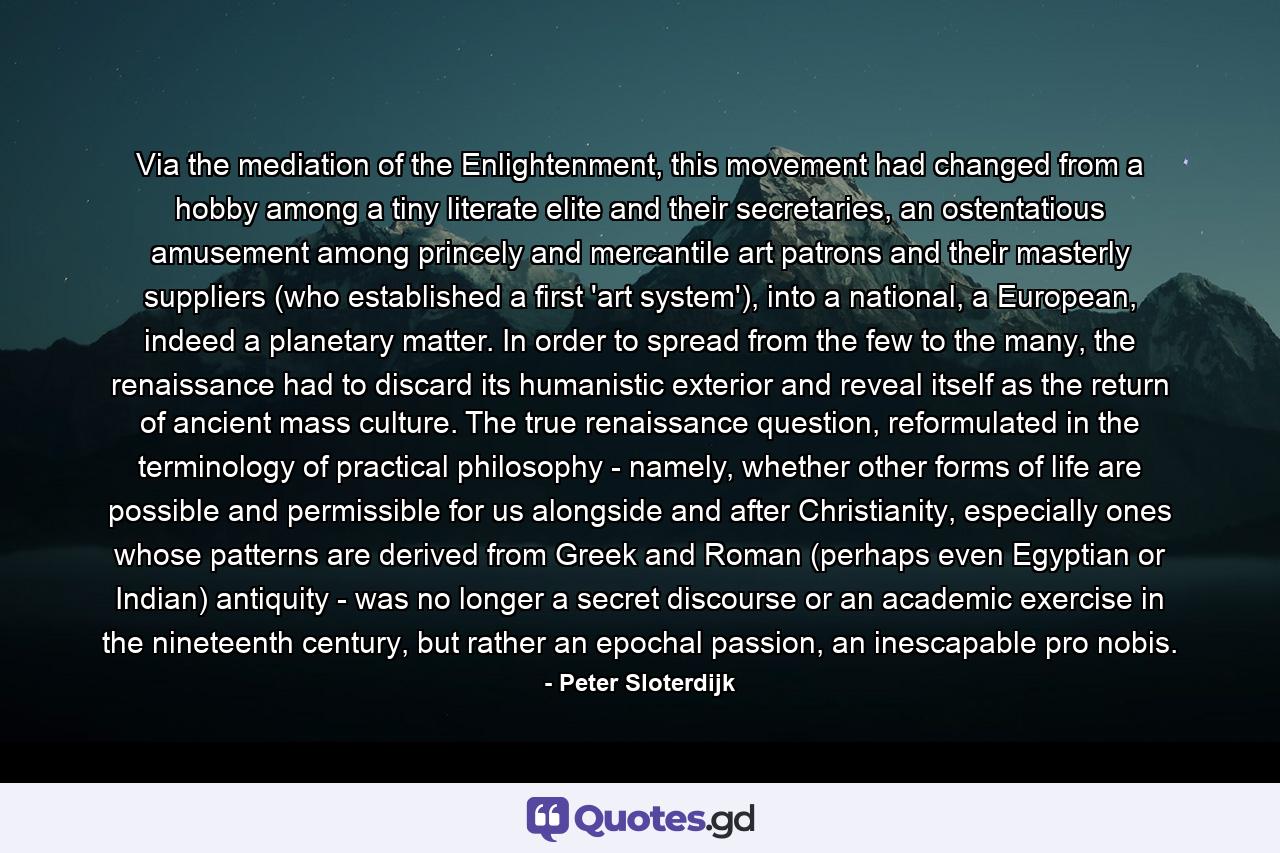Via the mediation of the Enlightenment, this movement had changed from a hobby among a tiny literate elite and their secretaries, an ostentatious amusement among princely and mercantile art patrons and their masterly suppliers (who established a first ‘art system’), into a national, a European, indeed a planetary matter. In order to spread from the few to the many, the renaissance had to discard its humanistic exterior and reveal itself as the return of ancient mass culture. The true renaissance question, reformulated in the terminology of practical philosophy – namely, whether other forms of life are possible and permissible for us alongside and after Christianity, especially ones whose patterns are derived from Greek and Roman (perhaps even Egyptian or Indian) antiquity – was no longer a secret discourse or an academic exercise in the nineteenth century, but rather an epochal passion, an inescapable pro nobis.
